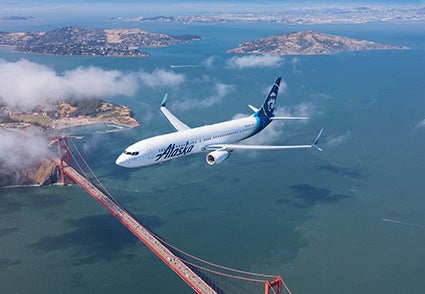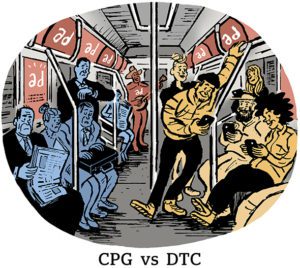The travel industry came to a screeching halt last year as consumers stayed indoors during the height of the COVID-19 pandemic.
Travel, however, is bouncing back, and while the delta variant could potentially derail that recovery, it hasn’t stopped airlines from encouraging folks to fly.
“We definitely saw through COVID that younger audiences were traveling sooner,” said Natalie Bowman, managing director of marketing and advertising for Alaska Airlines.
Seattle-based Alaska Airlines – the fifth largest airline in the United States, which serves more than 120 destinations in the US, Mexico, Canada and Costa Rica – changed its digital advertising strategy and media mix last year in part to reach those younger travelers, Bowman said.
The strategy includes more programmatic buys to enable more precision-based advertising, mainly through digital video on paid social channels such as YouTube, Facebook and Instagram, with a bigger push into emerging ad platforms such as TikTok. Connected TV will also play a larger role in the airline’s digital video strategy next year.
Programmatic now accounts for 15% of the airline’s overall media spend, a larger share of the overall budget after the company paused most of its traditional “above the line” advertising during the pandemic, Bowman said.
The West Coast airline also incorporated machine learning and first-party data into its strategy during the pandemic to target campaigns. The company teamed with Google in May of last year to develop a “predictive customer lifetime value model” via the Google Marketing Platform to better target audiences, Bowman said.
During the lull in travel, the airline also built a marketing data warehouse using Google Cloud, which tied together its first-party data across CRM, media and site analytics. Alaska Airlines worked on the project with Adswerve, a Google Marketing Platform partner.
Machine learning helped the airline predict which media investments would deliver long-term value and better focus its marketing efforts.
“We’ve been using [machine learning] to help us drive higher quality audiences and we’re seeing great results with that,” Bowman said. Alaska Airlines operationalized these predictive models across its investment with Google. Next, it plans to extend those learnings to the rest of its media buying, including programmatic and Facebook.
Social travel push
Back in December, the airline tapped media agency Mekanism to come up with a way to get people excited about traveling again. That led to Alaska Airline’s “Safety Dance” campaign – a play on the 1980s Men Without Hats hit tune – that included actual employees dancing in a hangar.
The ads – which are still running on Facebook and YouTube and ran in San Francisco during the Olympics – promote its Next-Level Care safety protocols around health and cleanliness, such as wearing masks and practicing social distancing.
In Alaska Airline’s next ad campaign, which launched on Tuesday, it bills itself as the “Official Airline of Rescheduled Events” to promote a fare sale with one-way flights as low as $39.
The ads – which are running on Facebook, Instagram and TikTok – encourage travelers to make up for canceled weddings, honeymoons and vacations, based on the insight that nearly half of travelers in the United States canceled their summer vacations in 2020 due to the pandemic, according to ValuePenguin.
Plus, leisure travel is seeing a resurgence more than business travel, Bowman said.
“In the spring we started to see larger group travel … people are rescheduling their weddings or doing their girls’ trips or guys’ trips that were delayed,” she said. “We knew there was still this appetite for travel that people still wanted to have these activities and events, whether it’s reconnecting with family or they just want to go have fun.”
The rescheduled events concept came out of Mekanism’s “Safety Dance” campaign in December, but Alaska Airlines held the campaign for months as the pandemic dragged on.
“I loved the idea of it – it’s such a great encapsulation of what everyone’s going through with so many rescheduled events, but we had to put a pin in it – December was a little too soon,” Bowman said. “August felt like the right time to combine those ideas.”
And if the delta variant forces travelers to cancel or reschedule, Bowman said the airline eliminated change fees for fares purchased on or after May 1.












